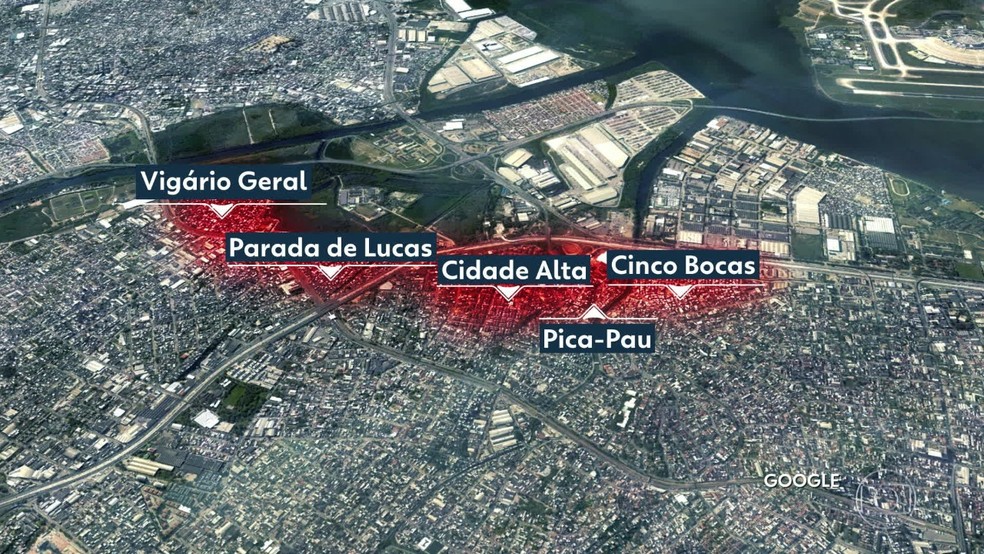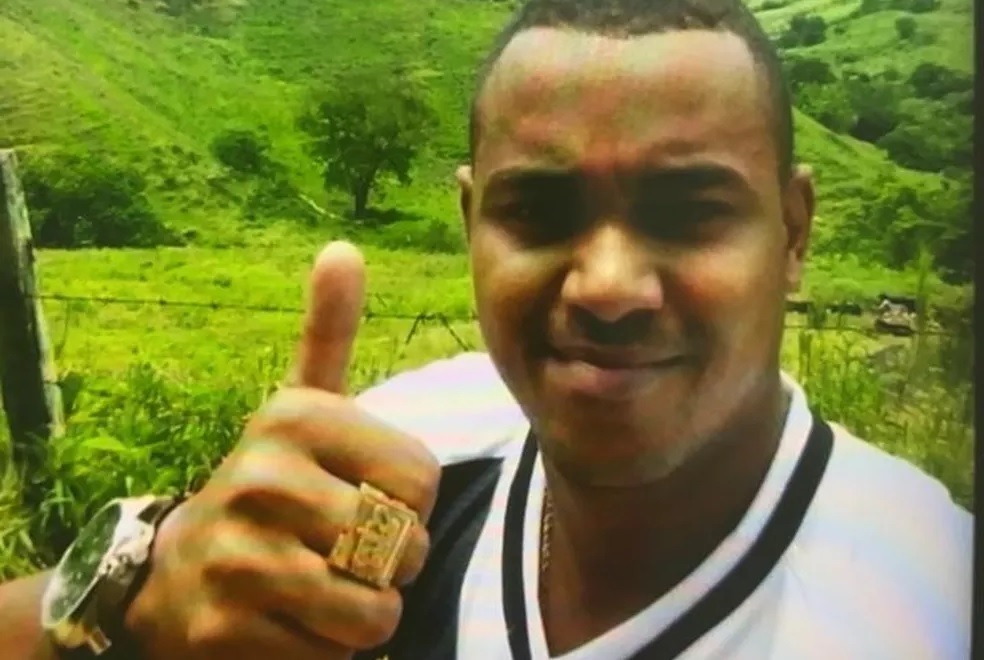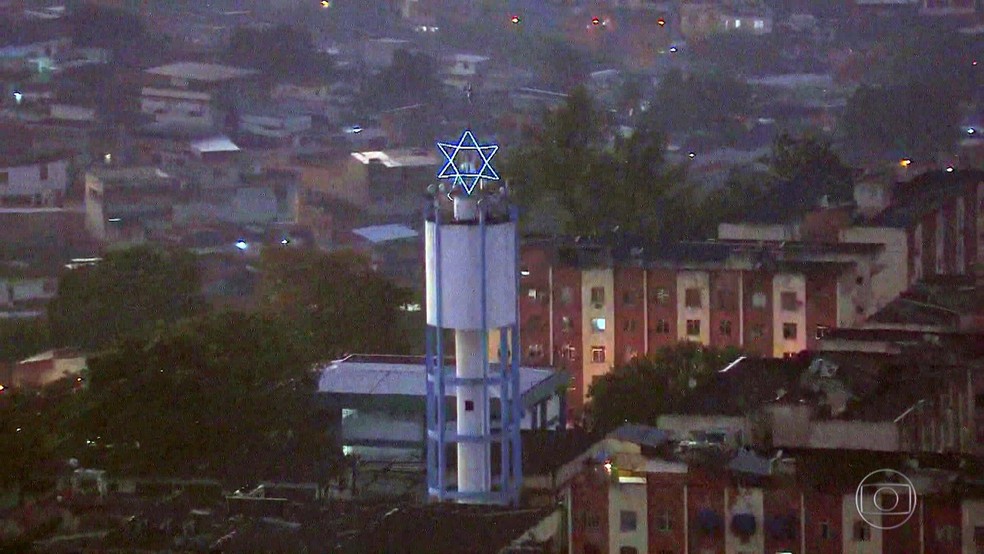RIO DE JANEIRO, BRAZIL – Amid the pandemic, a drug trafficker’s gang is invading communities in the city’s Northern Zone and creating a new favela complex. In expanding his dominance, the criminal is trying to enforce religion, leaving a trail of missing persons and placing barricades on the edge of Brasil Avenue, one of the main access routes to the city of Rio de Janeiro.

The “Complexo de Israel” is the name of the group of favelas controlled by drug dealer Álvaro Malaquias Santa Rosa, aka Peixão, 34 years old. The criminal’s rap sheet has 35 felonies. He has already been investigated, indicted and denounced, but has not been arrested to date.
Vigário Geral, Parada de Lucas, Cidade Alta, Pica-Pau, and Cinco Bocas are the five communities that make up the new complex, where around 134,000 people live.
The police are also investigating the gang’s expansion into two communities that have never been controlled by drug dealers: Estrada do Porto Velho and Lyrio Maurício da Fonseca Street, in the Brás de Pina region.
The criminal’s activities draw the attention of investigators to each area he controls, displaying symbols of the State of Israel, such as the country’s flag and even the Star of David and placing them in points in the communities to mark his dominance.
“We have noted that they are taking advantage of this period to extend territorial control to areas that formerly did not have a presence of drug trafficking, principally streets that were commonly accessible by society and the security forces,” said Maurício Mendonça, of the 38th District Police of Brás de Pina.
Next to each barrier set up by the criminals is the symbol of love and the word peace. This is how the gang has chosen to keep the police away and mark out the territory.
Globocop helicopter identified barriers in Cidade Alta, a housing complex in the Northern Zone of Rio, with over two thousand apartments. On social networks, the location is described as a closed condominium. According to the police, the author of the message is Giovani Barbosa Coutinho, aka Stuart Little, manager of drug trafficking in the favela.
Residents complain about the action of criminals in the neighborhood: “It’s very sad. I’ve lived here for 45 years, so it’s very sad. We know that violence is everywhere. But now we’re being held hostage and forced to stay indoors. And knowing that here, where they are staying, it’s a public road.”
Another resident complains about the gang’s actions in the region: “I am shocked because I am not used to living with armed people. I’m not socializing. It’s sad having to coexist with armed people in the street.”
Extension
The Peixão faction has ruled the Parada de Lucas favela for decades. In 2007, it invaded Vigário Geral, a neighboring community. Nine years later, in November 2016, the gang crossed Brasil Avenue and reached Cidade Alta. The confrontations lasted seven months.
In May 2017, the police intervened in the confrontation and arrested 45 people and seized 32 rifles. At the time, the Peixão gang set fire to nine buses and two trucks on Brasil Avenue, on the Washington Luiz Highway and on the Red Line highway leading out of Rio.
Disappearance Routine
In 2019, the traffickers initiated another dispute: this time for the control of the Cinco Bocas favela in Brás de Pina. Eight community residents have gone missing. Investigations found that they were executed, but the bodies have not been found.
Police say that disappearances in faction-dominated areas are underreported. On July 12th, a resident of Olaria, in the North Zone of the city, went missing after attending a party. The body of Luciano Castro Bonfim, 35, was found on the shores of Guanabara Bay. Over the past few days, police have also found body remains in barrels at three other points in the bay.
Residents say that seven more people have gone missing since the start of July in the region’s favelas. None of the cases has been recorded at the Missing Persons Police Station.
There are reports of disappearances since 2005. On Thursday, July 16th, residents found a body in the trunk of a car. According to investigators, it is yet another victim of traffickers.

Peixão and ten other indictees
The Civil Police indicted Peixão and ten other accomplices for murder and concealment of a corpse. Four criminals were arrested by the State Police. The others are still on the run.
- Álvaro Malaquias Santa Rosa, aka Peixão
- Rodrigo Ribeiro da Silva, aka Mia
- Loran de Azevedo Freaza, aka Marrom
- Moisés Severino da Silva, aka Dino
- Rafael Félix da Silva Valadares, aka Lulão (arrested)
- Erick Silva La Rosa, aka Ninho (arrested)
- Alan Pereira da Silva, aka Gordinho (arrested)
- Thiago Ferreira Rangel e Silva, aka Índio (arrested)
- Edilson of Jesus Junior, aka Pirâmide,
- Thiago Souza de Lima, aka Betinho
- Leílton Medeiros da Silva, aka Artilheiro
According to the police, Leílton, aka Artilheiro, is very active on social media. Last week he announced a favela takeover by the faction: “From Vigário Geral station to Brás de Pina station, everything is surrounded.”
In another profile, the celebration: “Now it’s a reality: another great achievement. The Complexo do Israel is in place.”
Attack on Battalion of Special Operations (BOPE) officer
The group is also known for confrontation and threats to people. One of the criminals’ victims on Porto Velho Road was a State Police (PM) officer from the Battalion of Special Operations (BOPE). He was driving by on the evening of June 23rd when he was approached by armed men.
In order not to be identified, the police officer sped up and was shot several times. The PM officer protected himself in a house and managed to escape. The case is under investigation by the Brás de Pina police station, which is investigating yet another complaint: that the residents are being searched when entering and leaving the street and on buses. Even cell phone contents are examined by traffickers.
One day after the attack on the PM officer, the police removed the barricades from the area. Prior to that, they exchanged gunfire with the criminals.
Two weeks ago, the Olaria battalion went back to the scene to remove more barriers and seized drugs, a gun, and fireworks. Two men were arrested. On Wednesday, July 22nd, the police removed barricades at 16 points in the region.
“If the ice is not wiped, the house will be flooded. So it is important to have a State Police presence in conflicted areas. While respecting the STF (Federal Supreme Court) decision, it is important not only to arrest criminals, remove weapons from circulation but also to prevent this displacement of criminal groups in search of territorial expansion,” explained Lieutenant Colonel Mauro Fliess, spokesperson for the Rio de Janeiro State Police.
A resident vents about the situation:
“What happens is that the community is afraid, it’s oppressed because it’s been following what’s been happening for four years in Cidade Alta, do you understand? Trafficking is growing, the population is growing scared and we have been witnessing everything. We’ve seen a lot of things happen. Many people have gone missing. And the same criminals who are making people disappear, invading houses, are still free and doing this barbaric thing.”

Religious war
In the Cinco Bocas favela, fear also affects faith. The older residents know the region as Vila Santa Edwiges, a reference to the image of the saint set up in the community square. Those who live in the favela say that Álvaro Rosa’s accomplices have pulled out and destroyed the statue. The place where the saint was standing is empty.
Among fellow criminals, Peixão calls himself Aaron, Moses’ brother in the Bible. His right-hand man in crime is Jeremias (Jeremiah). And he calls his gang Tropa do Arão (Aaron’s Troop).
On the Internet and the region’s walls, symbols of fish are painted next to the flags of Israel. In a note, the Archbishop of Rio, Cardinal Orani Tempesta, lamented the event and stated that the parish of Santa Edwiges, in Brás de Pina, holds masses regularly.
The traffickers seize religious images and symbols by spreading these representations on social media and walls in the controlled areas. “What we know is that the drug trafficking leader in the area enforces his religion very forcefully. So he doesn’t allow other people to practice different religions,” detective Maurício Mendonça said.
Peixão is accused in court of an attack on a candomblé (Afro-Brazilian religion) temple in April 2019 in Nova Iguaçu, in the Baixada Fluminense. The temple was destroyed. The ‘babalorixá’ (Babalawo) and the ‘filhos de santo’ (Babalawo’s followers) were expelled from the house. On the wall, the criminals left a message: “Jesus is the owner of this place.”
“They have a methodology of repressing people’s religion. They have a methodology of… for example, to smile in front of you and behind your back they’re getting organized because they know you said no. From the moment you say no to them you are targeted,” explained a woman who chose to remain anonymous.
“They are “trying” in Brás de Pina, expelling families, expelling ‘macumbeiros’ (Afro-religion followers)”, said another spiritualist center regular. In a statement, ‘babalaô’ Ivanir dos Santos, president of the Commission to Fight Religious Intolerance, asked for measures to be taken.
“Religious intolerance causes irreversible damage. It is necessary to act rigorously and to fight it. African based religions have been vilified for long, and yet another disrespect has occurred, this time directed at the Catholic faith. My total solidarity goes out to the practitioners. As a priest, I deplore this contempt for the creed. May the authorities take action as soon as possible.”
A resident, who prefers to remain anonymous, summarizes the situation in the region in light of the actions of the traffickers:
“In the old days, they were inside Parada de Lucas. Then they reached Cidade Alta, then they took over the whole of Cordovil and made alliances with other factions and are present in Guaporé and Quitungo, and now they have reached Cinco Bocas in Brás de Pina. So the residents are getting scared. The state does nothing. There are police operations, yes, special battalions like the BOPE and Riot Squad, but then they have to leave. And when they leave the community, the same criminals return and do atrocities. Charging and expelling families who denounce what they’ve been doing. That’s why people are afraid to denounce and testify.”
Source: G1

